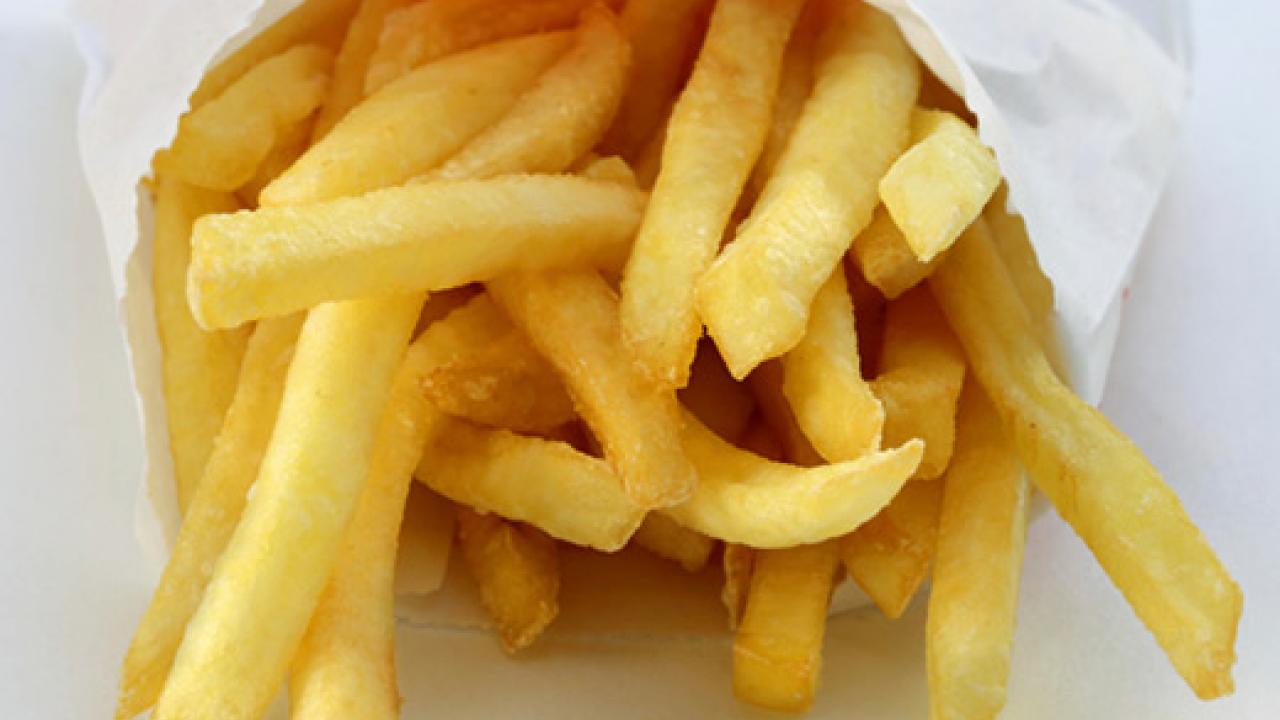People who know that certain foods are bad for them still respond positively when confronted by a picture of a burger, fries and soda, according to a University of California, Davis, study.
In the study, participants who self-reported they were nutritionally knowledgeable, but who didn’t have healthy eating habits, reacted more positively to images of “junk food” than images of healthy food. The positive response was followed by a negative one, but the former often won out.
“They know the consequences of eating unhealthy foods,” said the study’s author, Narine Yegiyan, an assistant professor of communication. “They are almost there in terms of willingness to give them up, but they are biologically struggling with it.”
She said the findings are important in shaping healthy eating campaigns aimed at these people who are prime candidates for eating behavior change.
Because this group initially responds positively to junk food images, healthy eating messages must be carefully crafted to prevent a “boomerang effect,” she said.
“Showing a picture of chips and saying ‘these are bad for you’ may just make them grab a bag of chips,” she said. “Encouraging them to eat healthy food like broccoli and carrots would be more effective. If images of junk food are going to be used they need to be accompanied by a very strong message stating why this is bad for you.”
Otherwise such images may “transfer into an increased desire to consume the unhealthy product,” the study states.
The study included 88 students ages 18 to 25 who attend a large college in the Midwest. “Junk food” was defined as food with high levels of sodium, fats, added sugars and refined grains. Reactions were gauged through “smiling” and “frowning” muscle movement measured through electrodes attached to the face.
Along with identifying the group that had high food knowledge but ate unhealthy food, the study also identified three other groups: people who had low food knowledge and ate poorly; those with low knowledge who ate well; and a group with high food knowledge and healthy eating habits. The group with high food knowledge that ate in an unhealthy manner was the only group that responded both positively and negatively to junk food images.
One of the study’s goals was to provide insights from both social science and biological science to use in creating healthy-eating campaigns. Too often, promotion of healthy eating doesn’t adequately recognize the powerful, positive physiological response many people have to high-calorie food, Yegiyan said.
“Combining the physiological and the cognitive measures in this kind of research is rare,” she said. “Because the issue involves more than one dimension of human response we need to systematically look at both aspects.”
The study was co-authored with Rachel Bailey, an assistant professor of communication at Washington State University. It will be published in Health Communication.
UC Davis is growing California
At UC Davis, we and our partners are nourishing our state with food, economic activity and better health, playing a key part in the state’s role as the top national agricultural producer for more than 50 years. UC Davis is participating in UC’s Global Food Initiative launched by UC President Janet Napolitano, harnessing the collective power of UC to help feed the world and steer it on the path to sustainability.
Media Resources
Jeffrey Day, Arts, humanities and social sciences, 530-219-8258, jaaday@ucdavis.edu
